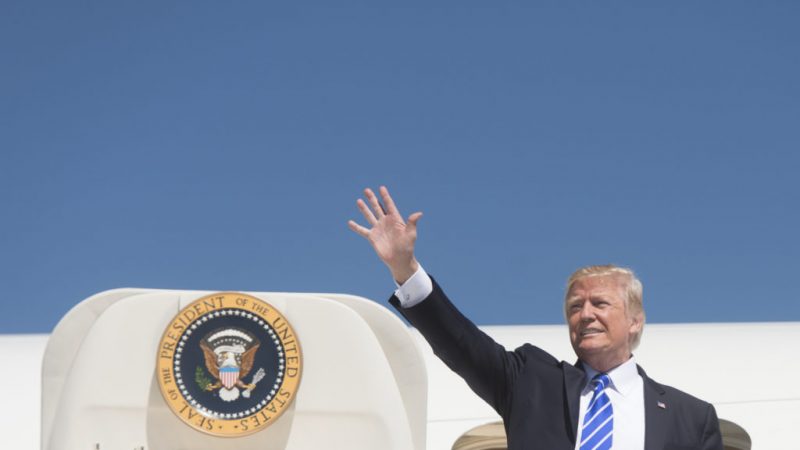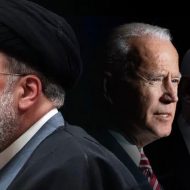On Thursday, Special Attorney Robert Mueller’s report on alleged “Russian interference” in the 2016 US elections was finally published, albeit partially censored. The report contains information on an investigation into the Donald Trump campaign’s alleged connection with Russian authorities, as well as the possible methods of Russian influence in the elections. The document was submitted to the legal committees of both chambers of Congress, and also published on the US Department of Justice website.
The Mueller’s report
The 448 paged Mueller report consists of two volumes and four annexes.
The first part (199 pages) is devoted to an investigation of “Russian intervention” in the 2016 presidential campaign and Moscow’s relations with Donald Trump’s entourage.
In the report, a certain Internet research agency located in Russia is mentioned. The report says that the agency placed posts on Facebook in support of Trump and against Democrat candidate Hillary Clinton: the cost of the posts totaled at around $100,000.
It is also noted that individuals allegedly associated with Russian military intelligence had launched cyber attacks on sites of the US Democratic Party, the stolen information later posted on WikiLeaks. Mueller blames “Russia’s military intelligence officers,” for stealing the information.
The report notes that the President’s son Donald Trump Jr. contacted WikiLeaks employees during the election race in 2016.
The investigation did not reveal evidence that any of the individuals of Trump’s circle in the United States had deliberately coordinated its actions with the Russian Internet research agency during the elections.
The second part of the report (182 pages) discusses Trump’s actions in relation to the investigation as it was being conducted, including an analysis of suspicions he had obstructed justice.
Trump’s rather public reaction to the course of the proceedings, his dismissal of FBI director James Comey and other potentially questionable decisions were declared not to be evidence of any malicious or illegal actions.
The second part also addresses:
– The reaction of the Trump campaign to accusations that Russia attempted to support him, as well as to the publication of the WikiLeaks emails stolen from the Democrats;
– Trump’s actions in relation to Michael Flynn, the national security adviser, who, as it turned out, lied to administration officials, the media and the FBI about his contacts with Ambassador Kislyak
– Trump’s attempts to hide that he gave Flynn instructions to speak with Kislyak, and the pressure he put on the heads of intelligence agencies in order to get an official statement from them that he was not connected with Russia or interference in the elections until the dismissal of the FBI director James Comey
– Trump’s behavior in dealing with colleagues Paul Manafort, Michael Flynn and personal lawyer Michael Cohen, as well as his reaction to their statements after the charges were brought against them.
The conclusions of the Mueller report
One of the main conclusions of the investigation was that there was insufficient evidence of Donald Trump’s team having any links with the Russian Federation.
At the same time, Washington continues to accuse Moscow of influencing the 2016 electoral process.
The publication of the report was welcomed by the White House, but Trump’s political opponents consider it insufficient and call for Muller to answer questions in Congress as soon as possible.
The political context of the Mueller’s report
Research related to Trump’s alleged connections with Moscow was launched after he was elected. The investigators claimed that Russian authorities tried to influence the elections through both the Internet Research Agency, and through cyber attacks by a “military-related General Intelligence Department”.
Washington continued to blame Moscow for breaking into the computer networks of the Committee for the Election of the US Democratic Party, the National Committee of the Democratic Party and the presidential campaign of Hillary Clinton, and for publishing the information on WikiLeaks.
“The authors of this report did not come to the conclusion that the president committed a crime, which, however, should not be considered its final justification,” the document says.
Democratic leaders Chuck Schumer and Nancy Pelosi insist that Mueller must present the report at a meeting of Congress where he can answer questions.
Reactions to the report
Donald Trump tweeted a meme featuring a design similar to the show ‘Games of Thrones’ accompanied by the words “No collusion, no obstruction. For the haters and the radical-left democrat – Game Over”.
— Donald J. Trump (@realDonaldTrump) April 18, 2019
Later, Trump expressed his satisfaction with the results and said that this situation should never happen again with any US president.
In turn, Democratic Senate Leader Chuck Schumer and Speaker of the House of Representatives Nancy Pelosi accused the head of the Justice Ministry for Trump’s misunderstanding of Special Prosecutor Muller’s team.
As we continue to review the report, one thing is clear: AG Barr presented a conclusion that @realDonaldTrump did not obstruct justice while the #MuellerReport appears to undercut that finding. pic.twitter.com/mHCzGc8RGT
— Nancy Pelosi (@SpeakerPelosi) April 18, 2019
The Democrats are calling for the public discussion with Mueller to take place at the earliest possible moment.
‘ I don’t believe that the Mueller report was much of a surprise to anyone who wasn’t a liberal. When the summary of the report сame out, it was basically convincing to most people. It was only members of the Democratic party and liberals who said ‘ we haven’t seen the full Mueller report, it could be something else’, ‘ American journalist Donald Courter told UWI.
The Democrats war with Trump
Despite the report not meeting Democrats’ expectations, the political struggle does not seem to be at an end. The Dems are now ready to initiate a new investigation. As the 2020 election campaign approaches, new accusations against both Russia and Donald Trump may well be constructed in the United States.
The internal political struggle in the United States is an inevitable result of the fact that, in addition to general anti-Russian rhetoric, some political forces are trying to use the anti-Russian card also against the president. That ‘anti-Russian’ card is a part of the pre-electoral campaign, and in some ways is a holdover from the Cold War.
Trump, considering himself to be the winner, will likely increase his attacks on the opposition. Impeachment is no longer possible, and Trump will certainly make use of his advantage.
‘This really is a reflexion of how many Americans are still living with a cold-war mentality. The liberal media’s position is clear from the way that they describe Russia – there is a very famous ‘The Economist’ magazine cover, where Putin is portrayed as a giant octopus – in the exact way they had portrayed Stalin as a communist octopus, spreading his tentacles into eastern Europe and the Caucasus back in the 1920s and 1930s,’ commented Courter.









Leave a Reply